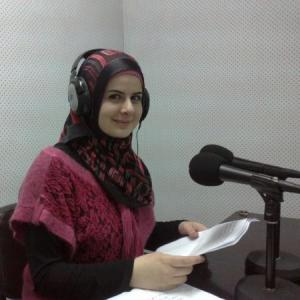As the world continues to navigate COVID-19, the IJNet Arabic Mentoring Center has brought in a new cohort of media entrepreneurs from across the Middle East and North Africa to support the development of their critical news initiatives.
In its eighth year now, the Mentoring Center will assist these media entrepreneurs navigate heightened global challenges to media sustainability brought on by the pandemic to cultivate their promising media projects.
The 2021-22 mentees — based in Algeria, Egypt, Lebanon, Morocco, Palestine, Tunisia and Yemen — will receive mentorship around sustainable growth and innovation strategies, and where to seek out new sources of revenue to support their work. They will also learn how to strategize, develop and present content that meets the needs of their respective audiences, and advance effective marketing plans.
“It is a key moment for the Arabic media. Increased repression and attacks on journalists have led to an increase in misinformation and less trust in institutions,” said mentor Ramsey Tesdell, founder of the independent Jordan-based news outlet, 7iber, and executive director of the podcasting platform, Sowt. “Arabic media plays an important role in helping citizens be informed and have the right and accurate information to be able to make decisions. These reasons and more show us the importance of mentoring new media outlets and helping them grow. I am excited about the new mentees and the diversity of work.”
[Read more: These 7 media projects shine in the 2020-21 IJNet Arabic Mentoring Center]
Ahmed Esmat, the executive director of Alexandria Media Forum, joins Tesdell this year as a program mentor. Based in Cairo, Esmat is an expert in entrepreneurship, innovation, digital marketing and media management. “We lack a guide to strategic media entrepreneurship in the MENA region. Throughout the program, we will focus on what each project is missing in order to complement and improve it,” he said. “Some media projects need direction, others require management skills, and some innovative projects need better information about best marketing strategies, their target audience, and how best to reach them.”
In addition to ongoing virtual mentoring, mentees and mentors will participate in a virtual two-day bootcamp in early December held alongside the 14th annual Arab Reporters for Investigative Journalism (ARIJ) Forum, which will also be online this year.
Here are this year’s eight mentees and their respective media projects:
Shehata Sayed
Egypt
Based in Egypt, Shehata Sayed runs a media platform he founded earlier this year called Open Source Handbook, which aims to support Arab journalists and media outlets conducting open source investigations. In growing his outlet during the Mentoring Center, Sayed hopes to reach more sustainable footing from which to equip investigative journalists with open-source intelligence (OSINT) skills and tools to turbocharge their reports.
Youssef Askour
Morocco
Award-winning journalist Youssef Askour, is the founder of Maghreb Al Thaqafa, a cultural platform in Morocco that publishes written, audio and video content. He focuses the outlet’s reporting on cultural affairs, primarily targeting an audience of young readers. He also hopes to engage these readers to help produce content of their own for the site.
Mohammed Ghazale
Lebanon
Amid Lebanon's deepening political and economic crisis, Mohammed Ghazale runs a website called ZNN. Ghazale’s team at ZNN fact-checks rumors circulating on social media, and produces in-depth investigative reports. Using guidance from the Mentoring Center, Ghazale hopes to launch a ZNN Academy to provide media literacy trainings. He also plans to develop an actionable business strategy, and continue to diversify the content he provides his readers.
Huda Harbi
Yemen
After seven years of war, Huda Harbi sees a glimmer of hope in Yemen. Together with a group of women journalists, Harbi launched Neswan Voice (Women's Voices, in English). The outlet aims to be a platform for women in Yemen, to amplify their voices and highlight their success stories. Harbi focuses the outlet’s reporting on marginalized groups of women, in particular, as well as people with special needs. As she hopes to establish Neswan Voice as a flourishing media organization for women in the country, she also plans to better equip her team of journalists with critical skills, and secure sustainable funding for the initiative.
[Read more: MENA-based journalists overcome challenges to report on refugees during COVID-19]
Hanane Batache
Algeria
Hanane Batache manages the Algerian platform “Aqwas,” which reports on local news, and provides training for media students in the country. Batache said she views the Mentoring Center as a golden opportunity to improve the sustainability of her media initiative. She also hopes to improve her strategic planning for the outlet, and create new partnerships.
Dares Badani
Yemen
Yemeni journalist Dares Badani runs the Media Center for Persons with Disabilities, with a team of seven paid and volunteer staff members, the majority of whom are people with disabilities. The Center produces written reports and success stories, as well as multimedia content. In their multimedia content, they make sure to use sign language to reach people with hearing disabilities, and they provide their written content in braille to reach those with vision impairments. Through the Mentoring Center, Badani hopes to find ways to support his project, through identifying new financial resources and implementing more effective strategic planning.
Fadi Husny
Palestine
Fadi Husny runs an independent storytelling platform called “Last Story,” which aims to report on the lives of Palestinians today, and the challenges they face. The outlet also produces hard-hitting investigations. Through his participation in the program, the award-winning journalist aims to develop administrative and marketing plans for his initiative, and acquire critical skills for attracting funders to support the platform.
Najoua Hammami
Tunisia
Investigative journalist and university professor Najoua Hammami runs an educational and awareness-raising radio station called Essaida (The Lady, in English). The outlet seeks to provide a platform for people with disabilities, as well as migrants and asylum seekers. During the program, Hammami will focus on developing a sustainability plan and content strategy that meets audience needs. She also hopes to solidify efficient communication and marketing plans. Hammami has won several awards for her reporting in recent years, including for best cross-border investigative report from ARIJ in 2016, and best investigative film at the Italian Film Festival in 2017.
Photo by Daoudi Aissa on Unsplash.
This article was originally published on our Arabic site. It was translated to English by Sarah Abdallah.


